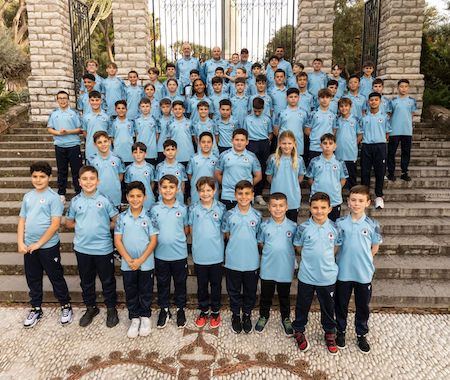In a move that has shocked local sports circles, Calpe City Football Club, a prominent youth development club in Gibraltar, has announced its decision to cease operations by the end of May.
This decision puts the future of approximately 100 young athletes in jeopardy, raising significant concerns about the availability of sports opportunities for youth in the area.
Founded to continue the legacy of Gibraltar United’s youth squad, Calpe City FC has been a crucial platform for young talents, providing exposure to international competitions and professional training opportunities without any cost to the Gibraltar Football Association (GFA). Despite these contributions, the club faced continuous obstacles in obtaining membership and recognition within the local football hierarchy, particularly, as Club President Seamus Byrne explains in his statement, from other GFA members, with the exception of Lincoln Red Imps and Mons Calpe SC.
The current crisis began with a failed partnership agreement with Europa Point FC, which was intended to help Calpe City continue its operations after being blocked from GFA membership. Club president Seamus Byrne and secretary Jonathan Golding cited financial disputes and unmet obligations as the core reasons for the termination of the agreement with Europa Point, ultimately leading to the club’s closure.
The GFA has responded by stating an investigation is underway, emphasising that ensuring no child is deprived of the opportunity to play football remains a priority. However, this has done little to quell the public dissent. Social media and local sports figures, including former Gibraltar FA Integrity Officer Louis Wink and local football agent Kenneth Asquez, have expressed their disappointment and have called for the GFA to take immediate action.
Moreover, the issue has transcended football, with Gibraltar Cricket publicly offering support to the affected players, indicating a broad concern for youth sports development in the community.
As this situation unfolds, the larger implications for sports governance and youth participation in Gibraltar are becoming clear. Critics argue that the current system, which allows existing clubs significant control over new memberships, undermines the spirit of fair play and inclusivity, as outlined in both FIFA and UEFA policies.
With Calpe City FC's closure, the question remains: where do the children play? This query not only highlights the immediate impact on the young players who have lost their training ground but also casts a long shadow on the future of sports development in the region, challenging the community and sports authorities to reflect on their responsibilities and the role of sports in fostering a healthy, vibrant youth community.


